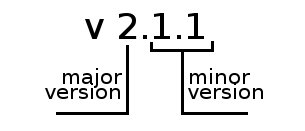
Terms and conditions of use
This agreement is copyright of the developer components; filter components; rules of the relationship between the component developer and the buyer.
Components on this site offered for purchase or use, limited to one license. Information about specific licenses, which restricts the use of the component appears on every page in the Features section.
The administration of the marketplace the right to change this agreement without notice to the user.
Version of the agreement: 07.07.2022.
I. Proprietary license for closed-source software
The main provisions of the license
-
Each copy of the component can be used on one domain of the production site (and additionally on one more test subdomain, on which you test and customize the component before installing it on the production site. The test subdomain should be called test; for example: test.example.com, where example.com - any domain). The localhost domain or IP address cannot be added to the license. When placing an order, you must specify a specific domain on which the ordered component will be used (if the test subdomain belongs to the same domain, then it is not necessary to specify it).
-
Other conditions for granting the right to use the component on additional domains are negotiated separately by feedback (for example, providing an additional test subdomain or changing the domain of the working site). You can change the domain of the working site only if it no longer exists, because the site has been moved to another domain.
-
Part of the component code is encrypted to protect against illegal use. The possibility of customization (changing the code for the specific needs of the customer's project) is preserved (i.e. template files and, perhaps, other files are left with open source). Code encryption means processing the source code with a special algorithm so that it becomes unreadable for the programmer and cannot be changed.
-
It is forbidden to decrypt the encrypted parts of the component for modification or other purposes that are contrary to this agreement.
-
See also section "General provisions".
This type of license is intended to reduce the illegal use of components. The advantage of this license is low cost component. The disadvantage is the lack of full access to the source code of the component for modification to suit your own needs. For most online store owners, this license is sufficient.
II. Proprietary license for source-available software
The main provisions of the license
- Each copy of the component can be used on one domain of the working site (and additionally on one more test subdomain, on which you test and customize the component before installing it on the working site. When placing an order, you must specify a specific domain on which the ordered component will be used (if the test subdomain belongs to the same domain, it is not necessary to specify it).
-
See also section "General provisions".
This agreement, which is aimed at the needs of the customers full access to the source code modules to modify to suit your needs, and use on their own sites. This is the advantage of this license. Disadvantage is higher price compared to license "Proprietary license for closed-source software".
General provisions for license types I and II
-
All minor component updates are free. Upgrading a component to a new major version is paid, and the cost of such an update is equal to the full cost of the new major version. Information about the new version of the component is published in the "Сhangelog" section on the component page.
-
The customer support may or may not include free personal consultations for a purchsed component. This is the prerogative of the vendor that publishes and supports the component. Information about the presence or absence of a free personal consultation on a particular component is displayed on the page of this component. If a component is sold without free personal consultations, then the cost of such a component will be significantly lower (by 50-70%).
-
If the component has a free personal consultation, the period of assistance is limited to three months. But, if after this period, the buyer of the component has never contacted feedback for advice, and then this need arose, then the buyer receives an additional 5 working days to ask after-sales questions, and after the end of this additional time, free consultations are considered exhausted. The component vendor, at its sole discretion, may respond to after-sale questions even when the support period has expired. In the absence or exhaustion of free personal consultations on the component, the possibility of obtaining minor component updates remains.
-
The revision of the component for specific customer needs not included in free support and is in agreement with the developer.
-
Buying component involves a careful study of the description of the component and the license agreement under which it is sold, and if you have any questions the buyer should ask the developer before making a purchase. Payment of an order indicates the unconditional acceptance of this agreement.
-
Materials transferred to the buyer by E-mail or downloaded via the personal account (components, documentation, etc.) are non-refundable.
-
After placing an order and paying for the component, it becomes available for download in the buyer's personal account in the orders section. Some components cannot be downloaded through your personal account, as they are delivered via E-mail directly by the component vendor. If one of these components was ordered, then the buyer should expect an email with the appropriate attachment. Delivery by E-mail is made manually by the vendor during working days and during working hours, so there is always a delay.
-
It is forbidden to resell, transfer to third parties, share the purchased component or publish parts of the source code of the component, both encrypted and open source.
-
It is prohibited to use the component in the composition of the unofficial releases (builds) of the system of PrestaShop distributed in any way (by subscription, paid or free, etc.).
-
It is prohibited to remove or change any information about the author and module (logo, license agreement, etc.).
-
In case of violation, the buyer component of this agreement, the component developer has the right to refuse support, informing about the specific reason.
-
The component is guaranteed with those versions of PrestaShop, which are listed on the feature page, where you'll find a full description of him.
-
If the buyer acquired a component that is not compatible with the version of PrestaShop that it uses, it is not a reason for cancellation of order and refund of payment. The component upgrade is performed in agreement with the developer. As a rule, this update is minor. Typically, the update component sometimes requires considerable time and follow the upgrade plan, which is developed by.
-
Critical problems with the component (bugs that cause it to stop PrestaShop, its incorrect behavior) on PrestaShop versions listed as compatible, are fixed by the component developer not later than 14 working days. If the developer cannot resolve the issue, the buyer component of the right not to wait for the patch and request a refund.
-
When incorrect operation of the component (non-critical) on PrestaShop versions listed as compatible on the description page of the component, the component developer is Troubleshooting at its own discretion and plan updates.
-
Reimbursement for components or services are not performed, except in cases where the parties – developer and buyer come to a common opinion in the decision of the arisen disagreements. Resolution of disputes is made through internal messages in the marketplace using a feedback mechanism. Refund is a last resort when a critical error component is not corrected by the developer. Errors associated with the site of the buyer, which do not allow the component developer to not work correctly are the reason for refund. There is a case where the refund component can be produced, the critical problem with the component that are not corrected by the developer. Condition for a refund request filed no later than 28 working days. The component developer and the administration of the marketplace is not responsible for the client's desire to purchase incompatible or inappropriate for component (carelessness of the buyer or failure of understanding the suitability of the component - this is not the case for refund).
-
When the decision is ambiguous (conflict) situation between the parties (buyer and developer), administration of the marketplace takes into account the correspondence of the parties, which is accomplished only through the feedback mechanism of the marketplace.
-
Failure to comply with the agreement, the apparent disrespect of the administration of the marketplace, the component developers or buyers, the administration of the marketplace the right to restrict access to the website destructive to the user, including the temporary or permanent blocking of the account, leading to the inability for the buyer to download component updates and receive support for the previously purchased components and developed components to sell.
III. Open-source license
Under this license components are published under one of open-source licenses, for example Open Software License (OSL 3.0). Following the license code of the component is free to download and use components under this license, and to make useful changes to a component via services such as GitHub or otherwise to participate in the development of a component (publish problems, enhancement requests, etc.).
This agreement is aimed at increasing the contribution to the development of PrestaShop and its components; increase in developers and increase their level of competence related to PrestaShop; improving the quality and quantity of free modules for PrestaShop, necessary for the development of online commerce.
Terms and definitions
-
PrestaShop - website management system to create an online store.
-
Marketplace (or the marketplace ModuleZ) refers to this website (that is, prestashop.modulez.ru), allowing to place the software components for PrestaShop for sale, as well as scripts and services.
-
ModuleZ – name system to host digital products.
-
A component (extension) — part of PrestaShop (component, topic of the site template to something) or script. Component or script— digital products.
-
The seller – the developer (vendor, author) of components and provider of services listed on the website of the marketplace, for example: prestashop.modulez.ru/developer/example (where example is the abbreviated name of the developer for a URL, that is, his nickname or company).
-
Domain is symbolic name used to access the site through the browser.
-
The home page of the component – section on this site dedicated to a specific component.
-
Module for PrestaShop software component that implements some business logic in a programming language that is used in PrestaShop.
-
The theme of the website — a set of templates that change the appearance of pages.
-
A template is a file that changes a single page or some pieces of some page.
-
Customer support — maintenance of the component, which includes the provision by the vendor of the component updates, the provision (or non-provision) of free personal consultations, answers to pre-sales and after-sales questions through the feedback of the marketplace.
-
Working hours — working days of the administration of the marketplace or vendors of components — from Monday to Friday, excluding holidays; business hours are from 10:00 to 18:00 local time of the administration or vendor. At their own request, component vendors can work on weekends and holidays.
-
Minor version and major version component serial IDs to indicate significance of changes between different stages of the development lifecycle of the program. These changes are classified by significance levels (see figure) is a major part of the identifier (significant changes in functionality) and a minor part (minor changes, correction of deficiencies).





